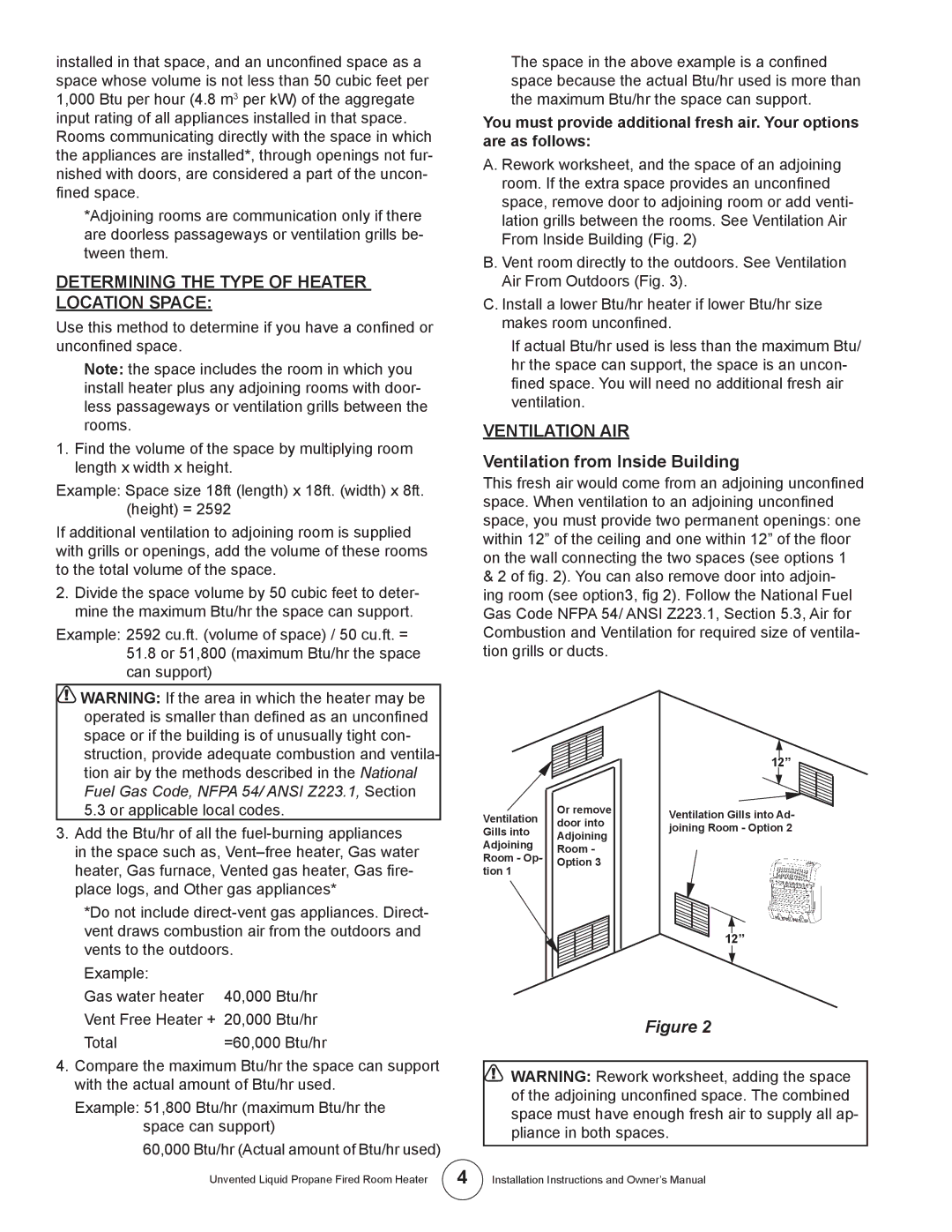MHBF6LP, HSBF30LPT, HSIR20LPT, HSIR30LPT, HSBF20LPT specifications
The Enerco MHBF10LP, TSBF10LP, HSBF10LP, HSBF20LPT, and TSBF20LPT are innovative heating solutions designed for both commercial and residential applications. These units are highly efficient gas-fired heaters offering versatile heating capabilities, ensuring user comfort in various settings.The MHBF10LP is a liquid propane heater featuring a powerful output of 10,000 BTU. It operates with a direct ignition system, allowing for quick and reliable startups. Its compact design makes it suitable for smaller spaces, while the adjustable heat settings empower users to customize their warmth. The MHBF10LP boasts a safety shut-off system which enhances the overall safety of the unit.
In contrast, the TSBF10LP is engineered for portability, offering the same 10,000 BTU output but with added mobility features. It comes with a built-in carrying handle and lightweight design, making it easy to transport from one location to another. Perfect for job sites or outdoor events, it features a sturdy construction that withstands demanding environments and a direct ignition system for ease of use.
The HSBF10LP, another variant in this range, offers high-efficiency heating in a small footprint. This model stands out with its integrated fan that aids in even heat distribution. Users can quickly warm up spaces without the long wait times. Additionally, it provides options for permanent installation, making it an adaptable choice for various applications.
The HSBF20LPT and TSBF20LPT models deliver enhanced power with a heating capacity of 20,000 BTU. The HSBF20LPT focuses on high efficiency and user convenience, featuring an automatic thermostat control to maintain desired temperatures without constant adjustment. Its robust design is perfect for larger areas, ensuring consistent warmth and comfort.
On the other hand, the TSBF20LPT is portable like its 10,000 BTU counterpart but with double the capacity. Its rugged construction and portability make it ideal for both indoor and outdoor use. The unit's reliability in diverse conditions is coupled with an ease of operation, providing warmth where it's most needed.
All models in this Enerco range prioritize user safety and efficiency. Featuring built-in safety mechanisms such as flame failure protection and tip-over shut-off systems, each heater ensures safe operation. Furthermore, the robust construction and high-quality materials used in these devices promise durability, making them a worthwhile investment for long-term heating needs.
Overall, Enerco's MHBF and TSBF series heaters represent a blend of modern technology, safety features, and user-friendly designs, tailored for a variety of heating applications.

